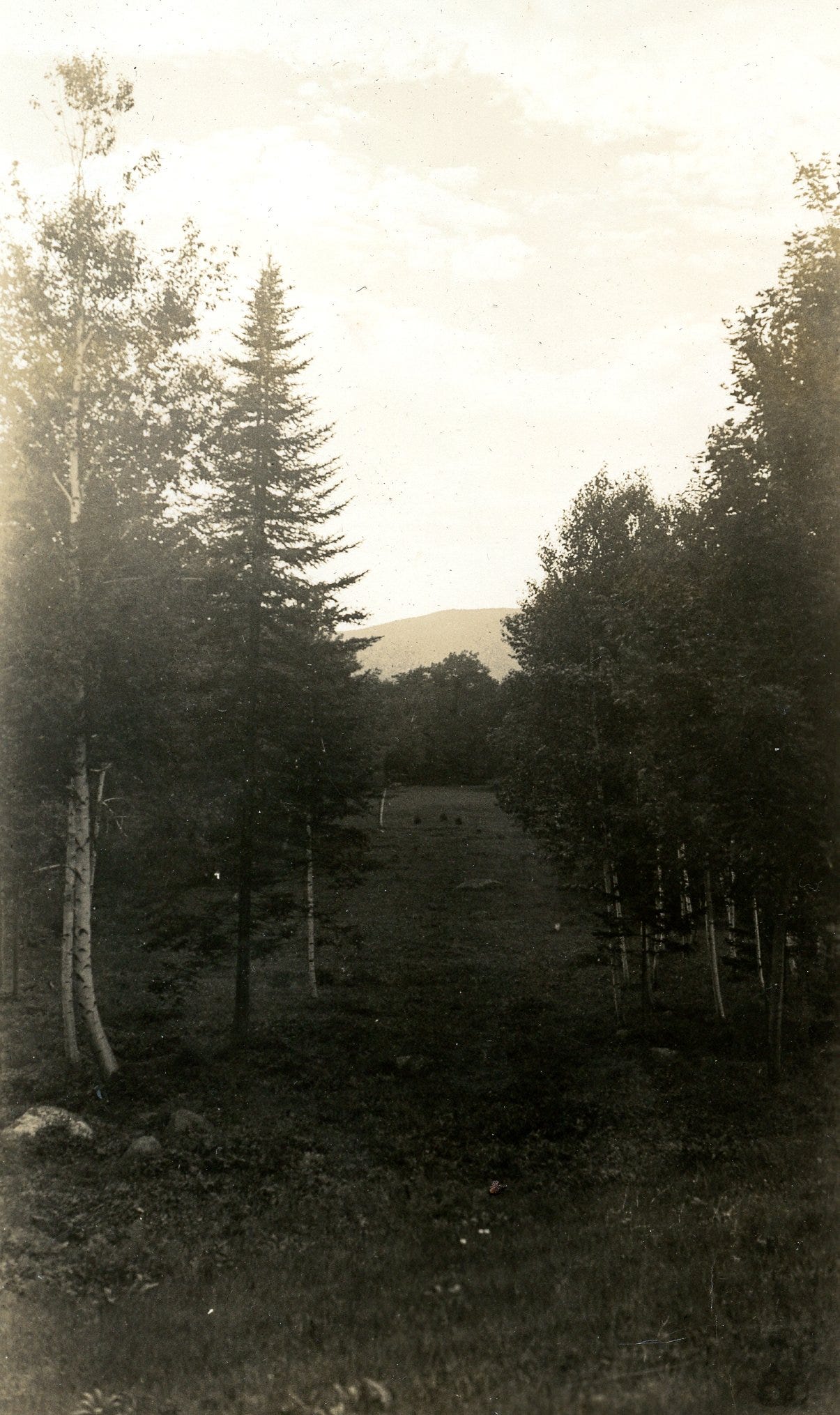Lovers Lane?
New Ipswich Historical Society
I’ve seen other photos of a trail with white birches referred to as “Lover’s Lane”. Maybe this is another view. Another unanswered question.
On this day - April 22, 1898
22 APR 1898
The Ultimatum embodying the Resolutions of Congress has been signed and sent by the President. It allows Spain until next Saturday in which to reply. The Spanish Minister at Washington, Señor Polo de Bernabé, asked for and received his passports. The Ultimatum will probably not be received or replied to. Great war preparations are in progress and fleets cleared for action. War is only allayed by a few preliminaries. Here in Europe the responsibility for war will be caused by the United States. In France the press and general opinions are in favor of Spain. Tremendous enthusiasm marked the opening of the Cortes (Congress) in Madrid and the Queen made her opening speech and received a magnificent ovation. The Spanish people are not wanting in pluck or courage. They unfortunately underestimate the American character and their strength. In the States we must look as well for some bitter experiences - unless the question is looked at in a more serious light. The conquest of Cuba is not the matter of a few weeks. Though our navy may achieve brilliant victories they may not come before thousands have sucummbed [sic] to yellow fever if an invasion of Cuba is attempted during the rainy season which begins very soon. Blockades will be resorted to but are not accomplished in a few days and Cuba could stand one for perhaps months. The insurgents will not accept the Armistice but have not supplies enough to carry on a vigorous campaign until assisted by our government. The transportation of great bodies of troops to Cuba will require time because of the vast preparations necessary for transports, protection by the fleet, etc. Meanwhile our coast is liable* to attack from the Spanish fleet. Our fleet in the East will probably move on the Phillipines [sic]** where the Spanish are said to have more ships. The American Navy is more up to date and will undoubtably prove its superiority. We will triumph in the end without any doubt whatever but the nature of the task has all that makes war brutal and inhuman.
*Transcriber notes that Kaula repeatedly used the word "liable" in place of what we might prefer to use - vulnerable. Is this a simple personal preference on his part or was that the term commonly used in that period of history? We know that language is continuously fluid and, therefore, an historical linguist might enlighten us on this question. Reaching out to all New Ipswich subject matter experts in linguistics! :)
** For those following the Kaula Diary, one must agree he had a very robust and colorful vocabulary and was quite adept at conveying a message. His spelling, however, was a bit less stellar. This transcriber gives him a pass, though, on spelling 'Philippines' incorrectly. One 'L' and double 'P' seems quite unnatural. And punctuation and grammar? Well, we all can improve on that front, yes?
On this day - April 22, 1909
James Roger diary entry - A Balloon?
22nd April 1909 (Thursday)
Thunderstorms about 11 pm last night with showers& showery morning, fair today wind variable from E to W by W. Balloon passed over village about 3 pm. David painting room above kitchen today, and started to Greenville in afternoon for grain, but found out on the way that it was half-holiday there. Fast Day. Flushing brought his eggs today. B. Thompson & him afterwards drove to Huckins. Sewing circle in vestry today and Grange tonight. 7 members got 1st & 2nd degrees.


Yes, language changes over time unfortunately. I don't mind new words but I don't like changing the definition of old ones. Another word Kaula used is 'pluck'. It can be a noun or a verb. The verb version is liable to misinterpretation and could be associated with fowl language. The noun version is used to enhance the amount of courage one has, like you have a lot of "plucking courage."